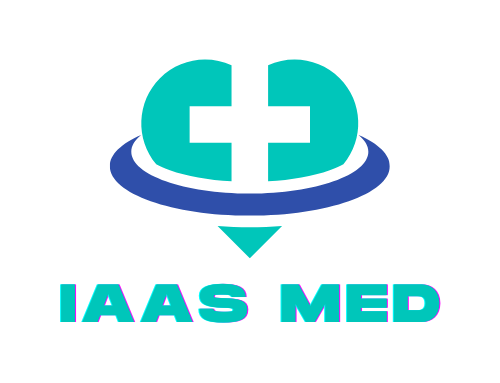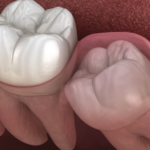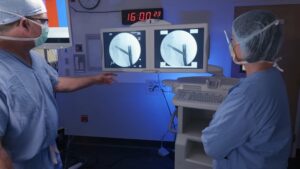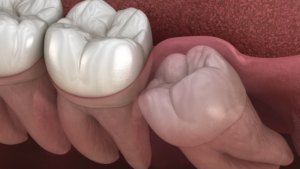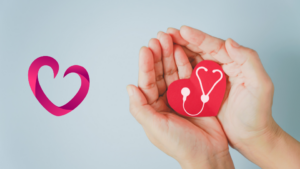Stomach pain—ugh, right? We’ve all been there at one point or another. Sometimes it’s just mild discomfort after a big meal, and other times, it’s an agonizing pain that makes you wonder if something serious is going on.
I’ve had my fair share of those stomachaches, so let’s break down some of the most common types of stomach pain and how to handle each one.
1. Sharp Jabbing Pain in the Upper Right Abdomen (Gallstones)

If you’ve ever felt a sharp, jabbing pain in your upper right abdomen after eating a greasy meal or late at night, gallstones might be the culprit.
According to David F. Sigmon, gallstones form in the gallbladder and can block bile ducts, which triggers this intense pain. I had a friend who dealt with this after eating a cheeseburger, and let’s just say, it wasn’t pretty.
How to Handle It
- Surgery is often the go-to if gallstones keep causing trouble.
- For smaller stones, medication that dissolves them might be an option.
- If the pain is minor, switching to a low-fat diet can help avoid future attacks.
2. Uncomfortable Bloating (Indigestion or Gas)
Bloating is probably the most relatable type of stomach discomfort, and for some, it’s just a part of life. Eating too quickly, indulging in gas-producing foods like beans and cabbage, or swallowing too much air can puff you up like a balloon.
I’ve been there after one too many slices of pizza—feeling like my jeans just got two sizes smaller.
How to Handle It
- Over-the-counter remedies like simethicone are effective, as per Curtis J. Ingold.
- Lifestyle changes like eating slower, avoiding gassy foods, and staying active can prevent bloating from taking over your life.
- Probiotics can also work wonders for balancing your gut.
3. Upper Stomach Pain (Acid Reflux or GERD)

That burning sensation in your upper stomach or chest after spicy tacos or a glass of wine? Yep, that’s probably acid reflux, also known as heartburn. When stomach acid makes its way into the esophagus, it can feel like you’re breathing fire.
How to Handle It
- Daniel E. Freedberg, MD, MS states that antacids or proton-pump inhibitors (PPIs) can help reduce acid production.
- Avoiding trigger foods (think: spicy, acidic, caffeinated) and eating smaller meals can make a big difference.
- For chronic sufferers, sometimes surgery is necessary.
4. Lower Abdominal Cramps (Irritable Bowel Syndrome or IBS)
Irritable Bowel Syndrome (IBS) is another common troublemaker, causing everything from cramps to bloating, gas, and even alternating diarrhea and constipation. Certain foods (hello, gluten and dairy), stress, or hormonal changes can set it off, making life pretty uncomfortable.
How to Handle It
- Dietary changes like cutting out trigger foods, increasing fiber, and staying hydrated can help keep symptoms at bay.
- If things get really bad, your doctor might suggest medications like antispasmodics or antidepressants.
- Stress management—whether it’s through yoga or deep breathing—can be a game changer for IBS.
5. Sudden and Severe Pain in the Lower Right Abdomen (Appendicitis)
When you experience sudden, severe pain in the lower right part of your belly, especially if it started near your belly button and moved to the right, it’s time to take it seriously. That’s the tell-tale sign of appendicitis, and trust me, you don’t want to ignore it.
How to Handle It
- As per Alexandra Nguyen, surgery (appendectomy) is typically required to remove the inflamed appendix.
- If left untreated, the appendix can rupture, causing even more severe complications. So, if you suspect appendicitis, head to the emergency room.
6. Generalized Abdominal Pain (Gastroenteritis)
As per Mayo Clinic, Gastroenteritis, or the stomach flu, comes with nausea, vomiting, diarrhea, and cramping. If you’ve had it, you know how miserable it can be. The good news? It usually passes on its own with some time and rest.
How to Handle It
- Rest, hydration, and bland foods like crackers or toast will help you recover faster.
- Avoid dairy and caffeine, as they can irritate your stomach further.
- In severe cases, your doctor might prescribe anti-nausea medications or antibiotics.
7. Burning Pain in the Stomach (Peptic Ulcer)

Peptic ulcers are open sores in the stomach lining, and they can feel like a burning or gnawing pain, as per Medscape. They’re often caused by excessive stomach acid, a Helicobacter pylori infection, or the regular use of NSAIDs like ibuprofen.
How to Handle It
- A study by Maha Begg states that medications like proton-pump inhibitors (PPIs) or H2 blockers can help reduce acid production and allow the ulcer to heal.
- If H. pylori is present, you might need antibiotics.
- Reducing stress and avoiding NSAIDs are key to preventing future ulcers.
8. Dull, Achy Pain (Constipation)
A study by Kok-Sun Ho explains that constipation can sneak up on you, especially if you’re not eating enough fiber, staying hydrated, or moving your body regularly. It often comes with a dull, uncomfortable pain and bloating, and trust me, it’s no fun.
How to Handle It
- Increase fiber intake with fruits, veggies, and whole grains.
- Stay hydrated and aim for regular physical activity to keep things moving.
- Over-the-counter laxatives or stool softeners can offer short-term relief.
9. Pain with Diarrhea (Inflammatory Bowel Disease or IBD)
Christopher McDowell’s study explains that Inflammatory Bowel Disease (IBD), which includes Crohn’s disease and ulcerative colitis, causes chronic inflammation in the digestive tract. The result? Diarrhea, stomach pain, fatigue, and even weight loss.
How to Handle It
- Medications like corticosteroids or immunosuppressants can reduce inflammation.
- In severe cases, surgery might be needed to remove damaged parts of the bowel.
- Dietary changes and avoiding trigger foods can help manage the symptoms.
10. Colicky Pain in Waves (Kidney Stones)
Kidney stones can cause intense, wave-like pain that radiates from your back or side to your lower abdomen and groin. It’s one of those pains that’s hard to ignore, and anyone who’s had a kidney stone knows it’s something you’d rather never experience again.
How to Handle It
- Small stones can pass naturally, so drink plenty of water to help them move along.
- Pain relief medications are often necessary.
- For larger stones, medical interventions like shock wave therapy or surgery might be required.
Prevention Tips for Stomach Pain
Stomach pain can be caused by so many different factors, but there are a few simple things you can do to keep your gut happy.
- Stay Hydrated: Drinking plenty of water daily can help your digestive system function smoothly.
- Adjust Your Diet: Skip large, heavy meals and cut back on foods that trigger discomfort, such as spicy or acidic options.
- Exercise Regularly: Moving your body helps with digestion and can prevent many common digestive issues.
- Consider Probiotics: Probiotics support gut health and balance, which can reduce issues like bloating and indigestion.
- Manage Stress: Stress is a common trigger for conditions like IBS and GERD, so finding ways to relax and unwind can make a big difference.
Summary
Remember, if your stomach pain is severe or doesn’t go away, it’s important to see a healthcare professional to figure out what’s going on and get the right treatment. But for those everyday aches and pains, these tips should have you feeling better in no time!
Related Posts:
- 5 Common Causes of Acid Reflux and How to Avoid Them
- How Entamizole Helps Relieve Stomach Pain - Uses Explained
- Why Your Healthcare Job Application Goes Unnoticed?…
- Common Colonoscopy Questions: What You Need to Know
- Top 14 Home Remedies for Relieving Pain in the Anus
- How Can You Tell If Your Pain is from the…
